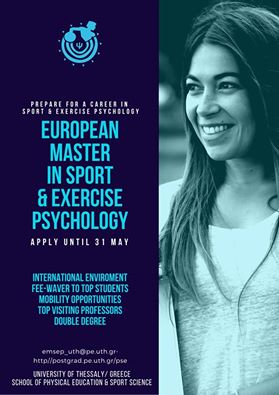The job profile published by Arsenal FC to select one psychologist for its youth program. For sure a Club where be competent is a great value!
Description
Arsenal Football Club Academy has for many years been a world leader in its field and is a constantly growing department within the organisation.
The aim of the Arsenal Football Academy is to tailor each individual’s development as a footballer by providing a World Class Development programme. The programme promotes the development of elite training environments to consistently outperform international competition. By placing players at the heart of the programme the aim is to develop and grow future Premier League & World Leading players in an environment which is challenging, developmental and inspirational.
Based at Hale End, the purpose of the role is to work as a Psychologist/Sport Psychologist applying psychological principles within Arsenal FC’s Youth System, alongside all relevant stakeholders to positively influence the environment, its people, and its processes.
Key Responsibilities
- Work with the Academy Manager and Psychology & Personal Development team to contribute to a person centred environment, moreover, influence at a system, cultural, training, team and individual level.
- Work to promote the welfare and well-being of the person (player, coach & practitioner) within the academy system
- Apply the principles of psychology & personal development to improving performance
- Provide individual psychological support with players & staff to address performance based challenges
- Work closely with coaches and support staff to practically develop resilience and well-being within the training environment to lead to enhanced performance both on and off the field
- Engage and deliver an ongoing meaningful Parent/Guardian/Host Family interaction and education curriculum in line with the Parent Strategy
- Where appropriate identify and facilitate communication methods, to inform and educate athletes, coaches and all staff in the effective use of psychological and personal development support
- To support, and help drive an agenda of personal development and contribute to a culture of learning within the football environment
- Contribute to the Wellbeing & Resilience Group (WRG); with supervisory support that monitors all Youth Academy players, identifies key challenges and agrees actions and key responsibilities
- Maintain a comprehensive record of work conducted with athletes and coaches
- Participate in ad hoc Academy and First Team projects and or applied research across the organisation as appropriate
- To compliment Arsenal People Development philosophy and work closely as part of the Psychology & Personal Development team to ensure a one-club approach
- To deliver a high-quality People Development Programme (psychology, personal development, player care & life skills) at Hale End, to support the development and resilience of our current & future Arsenal players regardless of their sporting success
- To facilitate extra-ordinary learning experiences for our young (and existing professional) players to learn from, both within and outside the club. Always championing our clubs values
- To facilitate a variety of personal development sessions throughout the season (where possible within the playing schedule)
Main Job Requirements and Person Specification
Education/Qualifications/Training:
- Must be qualified to post graduate level in Psychology or Sport Psychology and be BPS and BASES accredited, HCPC registered or working towards HCPC registration as a Psychologist/Sport Psychologist
- Possess qualifications In counselling, and or counselling skills, and an understanding of the importance of relationships to effective practice
Specific Experience:
- Ability to work on own initiative, and maintain independence within the environment
- Experience of working with young people and engaging hard to reach clients
- Experience of working in a busy, pressurised environment (willingness to work outside 9 to 5 hours when necessary)
- Extensive experience in the provision of psychological and personal development support to athletes and coaches to improve performance and contribute to a performance environment. This experience should include extensive work with youth teams and their athletes, in particular ages 9-16 year olds
Abilities/Skills/Knowledge:
- Practical experience of applying psychological knowledge within an elite sport environment
- Experience and skills in developing resilience in others, and promoting personal well-being and personal development
- An appreciation of clinical psychology and formulation driven practice and how this can contribute to productive work with athletes and teams
- Additional knowledge or skills in a range of psychological therapies (e.g. cognitive behavioural therapy, counselling)
Hours of Work
You will be required to work a total of 40 hours per week over 5 days to include evening, weekend and matchday.
Arsenal FC is committed to the principle of equal opportunity and its policies for recruitment, selection, training, development and promotion are designed to ensure that no job applicant receives less favourable treatment on the grounds of race, colour, nationality, religion or belief, sex, sexual orientation, marital status, age, ethnic and national origin, disability or gender reassignment.
Please note, you have until 23:59pm on Thursday 27 April 2017 to apply for this vacancy.
Closing Date: 27/04/2017







